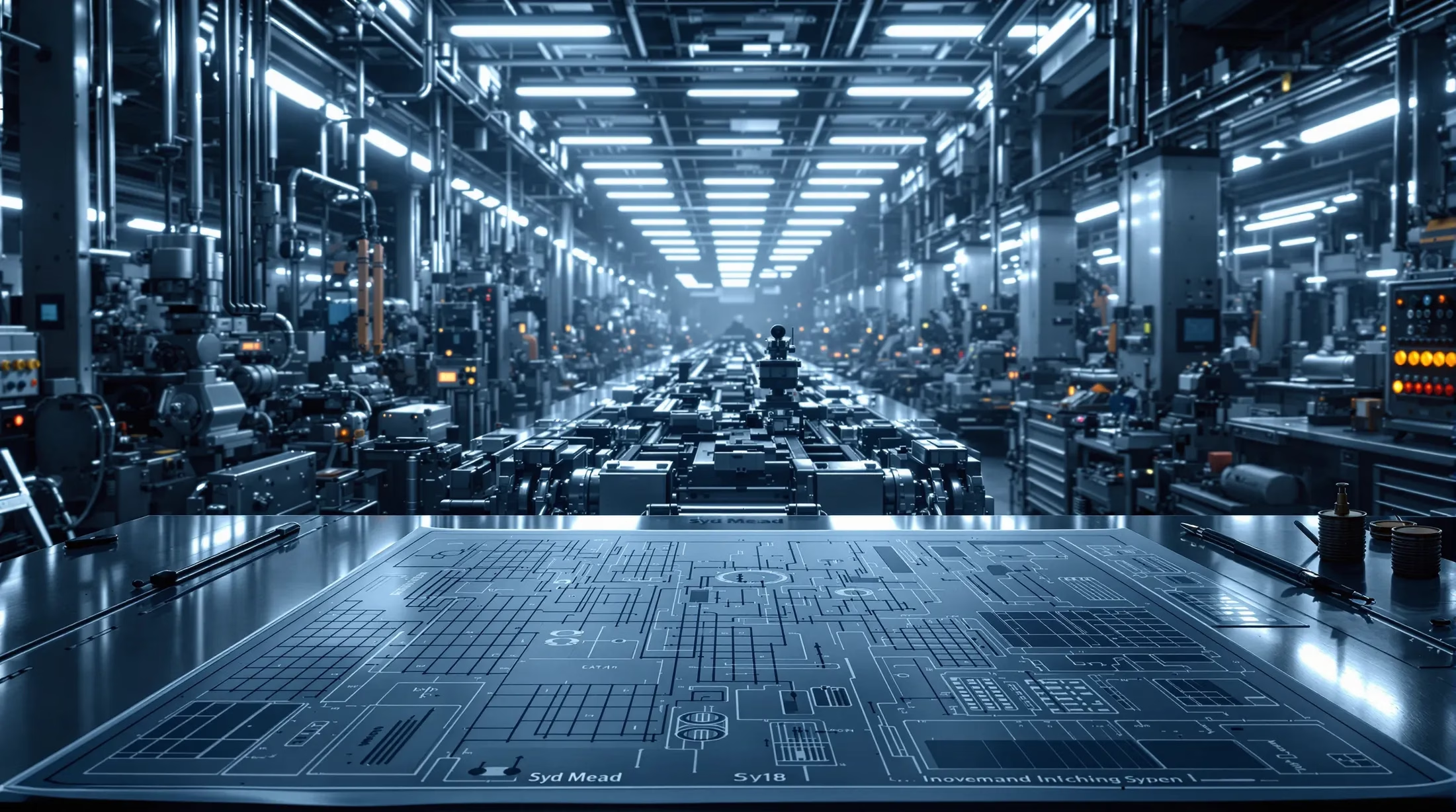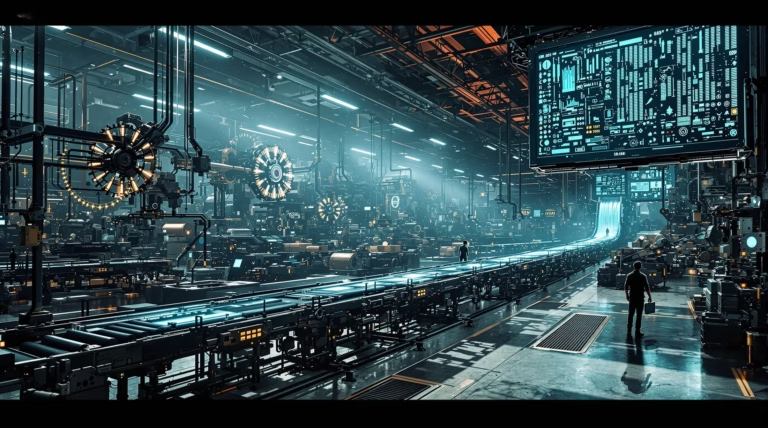Manufacturing Engineer: Roles, Responsibilities, and Career Path
In today’s rapidly evolving industrial landscape, Manufacturing Engineers play a vital role in shaping how products are made, from concept to completion. Whether you’re considering a career in manufacturing engineering or seeking to understand this dynamic profession, this comprehensive guide will explore the essential aspects of this field.
What is a Manufacturing Engineer?
A Manufacturing Engineer is a specialized professional who designs, implements, and optimizes manufacturing processes and systems. These engineers focus on non-chemical manufacturing systems, transforming raw materials and components into finished products such as cars, computers, phones, and medical devices.
At their core, Manufacturing Engineers are efficiency experts who combine technical knowledge with practical problem-solving to:
- Enhance production efficiency
- Maintain consistent product quality
- Reduce operational costs
- Analyze production data
- Identify and eliminate bottlenecks
Defining the Role of a Manufacturing Engineer
Manufacturing Engineers serve as the crucial bridge between product design and actual production, translating theoretical concepts into practical manufacturing solutions. Their scope encompasses the entire manufacturing lifecycle, from initial process design to final production optimization.
Daily responsibilities include:
- Analyzing production workflows
- Designing manufacturing layouts
- Selecting and programming automation systems
- Implementing quality control measures
- Conducting failure analyses
- Recommending corrective actions
Key Industries for Manufacturing Engineers
Manufacturing Engineers find diverse opportunities across multiple sectors, with particularly strong demand in specific industries:
| Industry | Focus Areas |
|---|---|
| Medical Devices | Precise engineering, critical product oversight |
| Automotive | Production systems, assembly optimization |
| Aerospace | Complex component manufacturing |
| Consumer Electronics | High-volume production, automation |
| Defense | Specialized equipment manufacturing |
Core Responsibilities of a Manufacturing Engineer
Manufacturing Engineers are responsible for transforming raw materials into finished products through non-chemical processes. They ensure production operations maintain efficiency, cost-effectiveness, and consistent quality standards while collaborating across departments to optimize the entire manufacturing ecosystem.
Designing and Optimizing Manufacturing Processes
Process design and optimization form the cornerstone of manufacturing engineering. Engineers evaluate and implement:
- Comprehensive production workflows
- Equipment placement strategies
- Material flow optimization
- Cycle time improvements
- Workstation arrangements
- Performance metrics analysis
Implementing Lean Manufacturing and Six Sigma
Manufacturing Engineers utilize advanced methodologies to enhance production efficiency:
Lean Manufacturing Principles:
- 5S – Sort, Set in order, Shine, Standardize, Sustain
- Value stream mapping
- Just-in-time production
- Waste elimination strategies
Six Sigma Framework (DMAIC):
- Define – Project scope and goals
- Measure – Current process performance
- Analyze – Root causes of issues
- Improve – Implementation of solutions
- Control – Maintaining improvements
Ensuring Quality Control and Compliance
Manufacturing Engineers shoulder critical quality control responsibilities by developing and implementing comprehensive verification systems. They establish detailed inspection protocols that determine measurement parameters, frequency of checks, and appropriate measurement tools. Through statistical sampling plans, these professionals efficiently monitor production quality without the need for 100% inspection. Additionally, they implement error-proofing (poka-yoke) mechanisms that prevent defects proactively rather than merely detecting them post-production.
- Establish inspection protocols and measurement criteria
- Implement statistical sampling methodologies
- Design error-proofing mechanisms
- Monitor production quality metrics
- Develop verification systems
The scope of compliance management extends beyond basic quality control, encompassing various regulatory requirements, industry standards, and customer specifications. Manufacturing Engineers must maintain current knowledge of relevant regulations, including:
- ISO standards and certifications
- FDA requirements for medical devices
- Automotive industry specifications
- Process validation documentation
- Quality audit preparation protocols
Skills and Education Required for Manufacturing Engineers
Success in manufacturing engineering demands a precise blend of technical expertise and professional capabilities. Most positions require a bachelor’s degree in manufacturing, industrial, mechanical, or production engineering, providing fundamental knowledge of engineering principles and manufacturing methodologies.
Essential Skills for Success
Analytical thinking forms the foundation of manufacturing engineering excellence. These professionals must:
- Systematically evaluate production data
- Apply lean manufacturing principles
- Implement quality assurance standards
- Master technical communication
- Develop problem-solving strategies
- Maintain organizational efficiency
Educational Pathways and Degrees
The standard educational requirement centers on a Bachelor’s degree in engineering, with programs typically including:
| Core Coursework | Specialized Topics |
|---|---|
| Manufacturing Processes | Digital Manufacturing |
| Materials Science | Smart Factory Technologies |
| Quality Control Systems | Sustainable Production |
| Production Planning | Automation Technologies |
Professional advancement often involves additional credentials such as:
- Master’s degrees in specialized manufacturing fields
- Certified Manufacturing Engineer (CMfgE) certification
- Lean Six Sigma certifications
- Continuing education through workshops and seminars
Career Path and Opportunities for Manufacturing Engineers
The manufacturing engineering career path offers diverse opportunities for professional growth, particularly in sectors embracing advanced manufacturing techniques. The field presents robust growth potential, especially in:
- Aerospace manufacturing
- Medical device production
- Automotive industry
- Electronics manufacturing
- Smart factory development
Industry projections indicate steady job market growth, driven by investments in automation, process optimization, and sustainable manufacturing practices. Specialists with expertise in additive manufacturing, industrial robotics, or production analytics often experience accelerated career advancement and enhanced earning potential.
Entry-Level to Advanced Positions
The Manufacturing Engineering career ladder begins with entry-level positions focused on implementing established processes and supporting production operations. At companies like RBC Bearings, new engineers gain hands-on experience with manufacturing techniques, quality control systems, and process documentation. Initially, engineers work under supervision, managing specific projects while applying engineering principles in real manufacturing environments.
- Entry-Level – Process implementation and production support
- Mid-Level – Increased autonomy and broader responsibilities
- Senior Level – Team leadership and process improvement initiatives
- Advanced Level – Specialized technical roles or leadership positions
- Executive Level – Director of Manufacturing or Chief Operations Officer
Career advancement typically spans 15-20 years, with progression accelerated through additional certifications, advanced degrees, and demonstrated leadership capabilities.
Job Market and Growth Prospects
The Manufacturing Engineering field demonstrates robust growth potential, particularly as industries adopt Industry 4.0 technologies and smart manufacturing principles. The U.S. Bureau of Labor Statistics indicates steady demand, with expanding opportunities in:
- High-precision manufacturing sectors
- Advanced materials production
- Automated production systems
- Renewable energy equipment
- Electric vehicle manufacturing
- Advanced electronics
- Medical technology development
| Career Level | Salary Range |
|---|---|
| Entry-Level | $65,000-$75,000 |
| Experienced Professional | $120,000+ |
Technological Tools and Innovations in Manufacturing Engineering
Manufacturing engineering has evolved significantly through the integration of advanced technological tools that enhance productivity, precision, and efficiency. Modern manufacturing engineers utilize sophisticated equipment and digital solutions to optimize production processes and maintain competitive advantage globally.
- Smart factory technologies
- Internet of Things (IoT) sensors
- Real-time monitoring systems
- Predictive analytics platforms
- Digital production solutions
The Role of CNC Machines and Robotics
Computer Numerical Control (CNC) machines represent a cornerstone of modern manufacturing engineering, executing precise operations through programmed instructions. Manufacturing engineers design CNC programming workflows, establish tooling parameters, and optimize machining strategies to maximize equipment capabilities.
Robotics engineering has transformed manufacturing processes, with engineers designing and implementing robotic systems for complex tasks. This shift has created new workforce dynamics, emphasizing the need for operators and programmers who can supervise automated systems while maintaining safety protocols and human-machine collaboration.
Innovations Driving the Future of Manufacturing
- Additive manufacturing and 3D printing technologies
- Digital twins for virtual process simulation
- Artificial intelligence for predictive maintenance
- Augmented reality for operator guidance
- Blockchain for supply chain transparency
- Nanotechnology applications
- High-performance composites
These emerging technologies continue to transform manufacturing engineering, requiring professionals to expand their technological expertise while maintaining focus on practical, value-adding applications. The integration of computational fluid dynamics, acoustical engineering models, and real-time data analysis enables engineers to predict system behavior and optimize operations proactively.







